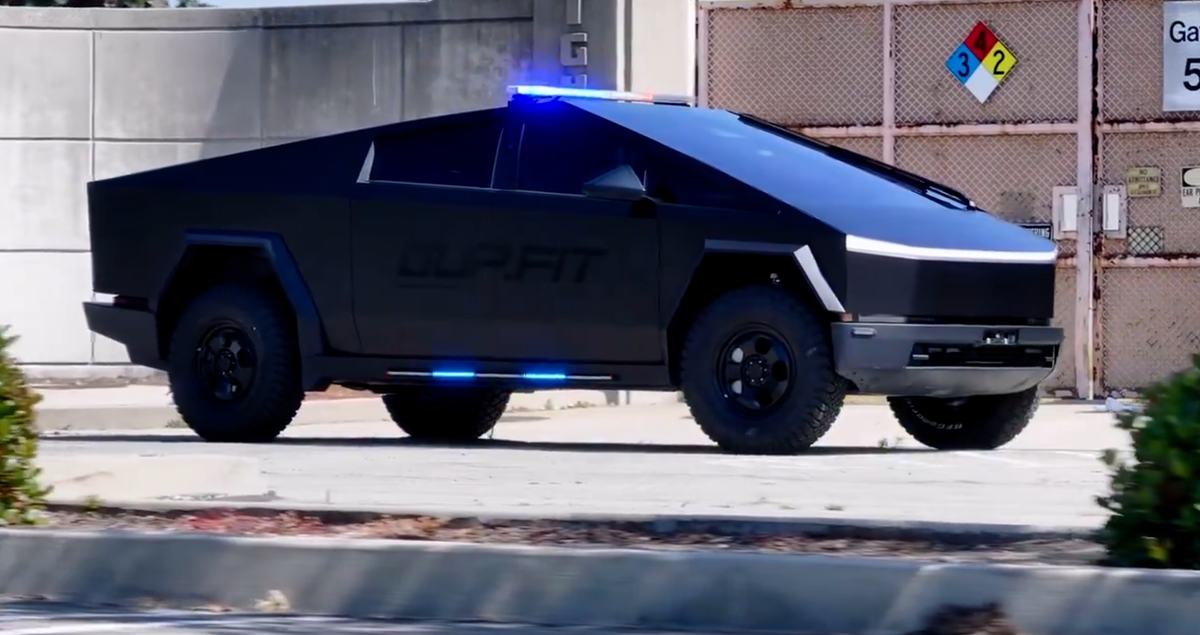A California police department wants to be the first agency to have a law enforcement-branded Cybertruck, according to an internal email obtained by 404 Media.
The email Sergeant Jacob Gallacher, of the Anaheim Police Department, sent in early February read “P.S. I spoke with the Chief yesterday and we still want to be the first police agency to have a Cybertruck. If anyone can make that happen, I know it is you!” Gallacher sent the email to James Hedland from UP.FIT, a company that sells modified Teslas for use by law enforcement. The email was part of a conversation about the department’s use of Teslas.
Gallacher later told 404 Media that the email was something of “a joke,” but reaffirmed the agency’s wish to obtain a Cybertruck before other agencies, even if more for “community engagement” than using it as a patrol vehicle.
“We would, but it’s not necessarily from a patrol perspective,” Gallacher said. 404 Media obtained the email through a public records request.



Oh, that’s nice.
That’s not.
Hmm. I wonder if it’s because adding extra charge/discharge cycles eats into battery life, which is probably a major bound on the car’s life.
considers
Honestly, if EVs don’t have a way to read charge/discharge count in a way that’s hard-for-potential-resellers-to-fiddle-with the way odometers are, they probably should, and EV sales should probably list that number the way cars do mileage today, as a measurement of “wear”.
EDIT: And at least for the battery, the warranty should probably be on the number of charge/discharge cycles, not on the distance traveled.
Oh, most definitely. Tracking battery wear should 100% be standard practice, and considered when buying/selling used EVs.
I just find it interesting that Tesla tells you to do something, then ultimately punishes you for doing so.
If you’re not supposed/allowed to use it as a stationary power station; don’t advertise that use case as a selling point.